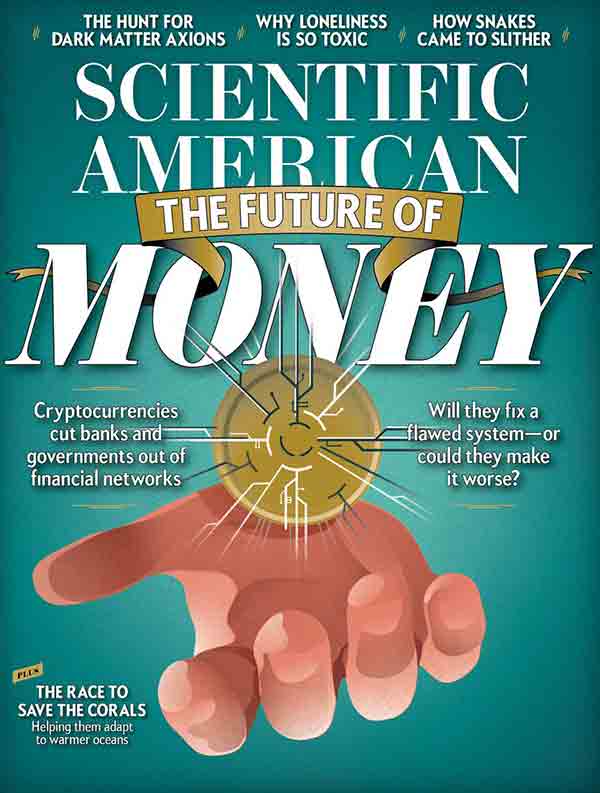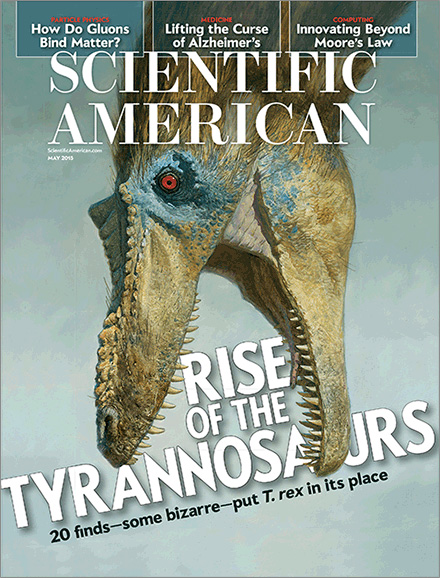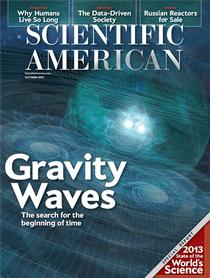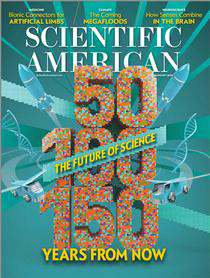Combating science denial with science pleasure
That conservatives doubt scientific findings and theories that conflict with their political and religious beliefs is evident from even a cursory scan of right-leaning media. The denial of evolution and of global warming and the pushback against stem cell research are the most egregious examples in recent decades. It is not surprising, because we expect those on the right to let their politics trump science—tantamount to a dog-bites-man story.
That liberals are just as guilty of antiscience bias comports more with accounts of humans chomping canines, and yet those on the left are just as skeptical of well-established science when findings clash with their political ideologies, such as with GMOs, nuclear power, genetic engineering and evolutionary psychology—skepticism of the last I call “cognitive creationism” for its endorsement of a blank-slate model of the mind in which natural selection operated on humans only from the neck down.
In reality, antiscience attitudes are formed in very narrow cognitive windows—those in which science appears to oppose certain political or religious views. Most people embrace most of science most of the time.
Who is skeptical of science, then, and when?
That question was the title of an October 2017 talk I attended by Asheley R. Landrum, a psychologist at Texas Tech University, who studies factors influencing the public understanding and perception of science, health and emerging technologies. She began by citing surveys that found more than 90 percent of both Republicans and Democrats agreed that “science and technology give more opportunities” and that “science makes our lives better.” She also reviewed modest evidence in support of the “knowledge deficit hypothesis,” which posits that public skepticism of science is the result of inadequate scientific knowledge. Those who know more about climate science, for example, are slightly more likely to accept that global warming is real and caused by humans than those who know less on the subject. (continue reading…)
read or write comments (11)
The moralistic motivations of ISIS
IN AN UNINTENTIONALLY HILARIOUS VIDEO CLIP, primatologist Frans de Waal narrates an experiment conducted in his laboratory at Emory University involving capuchin monkeys. One monkey exchanges a rock for a cucumber slice, which he gleefully ingests. But after seeing another monkey receive a much tastier grape for a rock, he angrily hurls it back at the experimenter when he is again offered a cucumber slice. He rattles the cage wall, slaps the floor and looks seriously peeved at this blatant injustice.
A sense of justice and injustice—right and wrong—is an evolved moral emotion to signal to others that if exchanges are not fair there will be a price to pay. How high a price? In the Ultimatum Game, in which one person is given a sum of money to divide with another person—with the stipulation that if the offer is accepted both keep the money, but if the offer is rejected no one gets any money—offers less than 30 percent of the sum are typically rejected. That is, we are willing to pay 30 percent to punish an offender. This is called moralistic punishment. (continue reading…)
read or write comments (1)
Then ideology needs to give way
Ever since college I have been a libertarian—socially liberal and fiscally conservative. I believe in individual liberty and personal responsibility. I also believe in science as the greatest instrument ever devised for understanding the world. So what happens when these two principles are in conflict? My libertarian beliefs have not always served me well. Like most people who hold strong ideological convictions, I find that, too often, my beliefs trump the scientific facts. This is called motivated reasoning, in which our brain reasons our way to supporting what we want to be true. Knowing about the existence of motivated reasoning, however, can help us overcome it when it is at odds with evidence.
Take gun control. I always accepted the libertarian position of minimum regulation in the sale and use of firearms because I placed guns under the beneficial rubric of minimal restrictions on individuals. Then I read the science on guns and homicides, suicides and accidental shootings (summarized in my May column) and realized that the freedom for me to swing my arms ends at your nose. The libertarian belief in the rule of law and a potent police and military to protect our rights won’t work if the citizens of a nation are better armed but have no training and few restraints. Although the data to convince me that we need some gun-control measures were there all along, I had ignored them because they didn’t fit my creed. In several recent debates with economist John R. Lott, Jr., author of More Guns, Less Crime, I saw a reflection of my former self in the cherry picking and data mining of studies to suit ideological convictions. We all do it, and when the science is complicated, the confirmation bias (a type of motivated reasoning) that directs the mind to seek and find confirming facts and ignore disconfirming evidence kicks in. (continue reading…)
read or write comments (43)
How our modular brains lead us to deny
and distort evidence
IF YOU HAVE PONDERED how intelligent and educated people can, in the face of overwhelming contradictory evidence, believe that that evolution is a myth, that global warming is a hoax, that vaccines cause autism and asthma, that 9/11 was orchestrated by the Bush administration, conjecture no more. The explanation is in what I call logic-tight compartments—modules in the brain analogous to watertight compartments in a ship.
The concept of compartmentalized brain functions acting either in concert or in conflict has been a core idea of evolutionary psychology since the early 1990s. According to University of Pennsylvania evolutionary psychologist Robert Kurzban in Why Everyone (Else) Is a Hypocrite (Princeton University Press, 2010), the brain evolved as a modular, multitasking problem-solving organ—a Swiss Army knife of practical tools in the old metaphor or an app-loaded iPhone in Kurzban’s upgrade. There is no unified “self” that generates internally consistent and seamlessly coherent beliefs devoid of conflict. Instead we are a collection of distinct but interacting modules often at odds with one another. The module that leads us to crave sweet and fatty foods in the short term is in conflict with the module that monitors our body image and health in the long term. The module for cooperation is in conflict with the one for competition, as are the modules for altruism and avarice or the modules for truth telling and lying. (continue reading…)
read or write comments (21)





